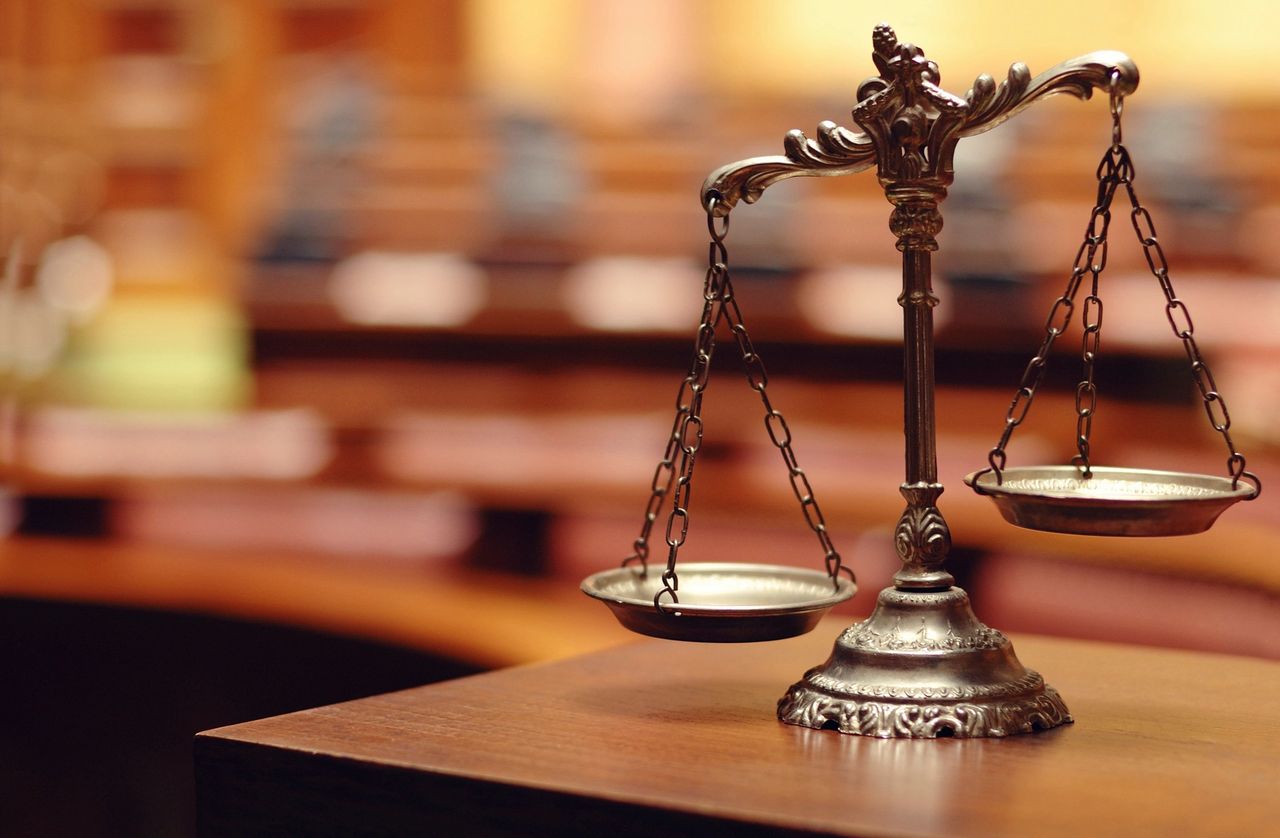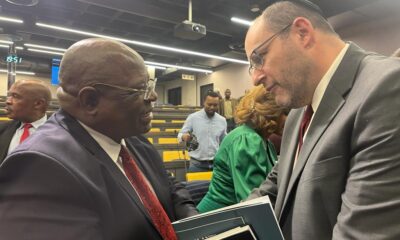
Banner

Community called to back anti-corruption body
A proposition for a new, independent anti-corruption body landed on President Cyril Ramaphosa’s desk on Tuesday, 24 August, and those who have spent years toiling to make it happen are asking the South African Jewish community to support it in any way it can.
“Our community was burnt by the actions of the ‘Gupta minyan’ during state capture,” says community stalwart Mark Hyman. He is the founder and director of a new organisation called Citizens for Integrity, and played a key role in putting together the memorandum sent by nongovernmental organisation (NGO) Accountability Now to the president this week.
“Corruption has decimated other Jewish communities living in failed African states. This is relevant to us all. As Jews, we cannot stand by and let corruption happen. We need to get behind this process.”
Accountability Now proposes the formation of a Chapter Nine anti-corruption body provisionally called the Integrity Commission. Chapter Nine institutions refer to organisations established in terms of Chapter 9 of the South African Constitution to guard democracy.
One of Accountability Now’s directors, Paul Hoffman SC, says that this specialist, elite, and independent anti-corruption body would help to prevent, combat, investigate, and prosecute the corrupt in our midst.
“Serious corruption, be it in the form of state capture, ‘covidpreneurism’, or orchestrated looting and rioting is the number-one threat to the rule of law and the success of our Constitution,” says Hoffman.
Accountability Now has advocated the need for such a body for more than a decade. It believes it has now become a matter of urgency due to the shrinking economy and unrest being fomented. “The beauty of the Chapter Nine umbrella is that the body cannot be closed down as easily as the Scorpions were dissolved,” says Hoffman.
In the memorandum that was sent to the president and Parliament this week, Accountability Now called for the introduction of a constitutional amendment and enabling legislation for the establishment of constitutionally compliant anti-corruption machinery of state in South Africa.
“Serious forms of corruption like grand corruption, state capture, and kleptocracy in South Africa are criminal violations of fundamental constitutional and human rights. They are literally killing many South Africans, mostly the poorest, and some of the whistle blowers,” says Hoffman.
“The anti-corruption machinery of state in South Africa isn’t fit for purpose, especially regarding serious corruption in all its forms,” he says.
Hoffman says Ramaphosa was asked in Parliament in 2019 to consider the establishment of a Chapter Nine anti-corruption body, to which he replied that he would “mull over” the “refreshing idea”.
Then, in August 2020, the African National Congress (ANC) National Executive Committee (NEC) instructed cabinet to set up new anti-corruption entity. It envisaged a stand-alone, single, permanent, and independent body, capable of dealing with corruption without fear, favour, or prejudice. That resolution hasn’t been acted on openly yet.
However, in his State of the Nation address in February, Ramaphosa announced that there was a long-term plan for a new anti-corruption body that reported to Parliament, but he would need to consult about it over the next two years.
“He clearly didn’t see it as urgent then, but we disagree, as South Africa is sliding toward failed-state status,” says Hoffman. “So, we sat down and prepared a constitutional amendment and enabling legislation. To get there, we have proposed a divorce between the NPA [National Prosecuting Authority] and the justice department so as to secure the independence of the NPA and eliminate the influence of the executive branch of government over it.
“We also proposed a definition of serious corruption which is those cases in which more than R5 million is involved. Only cases of serious corruption will be dealt with by this new commission. The idea is that it will be a ‘one stop shop’ with a branch in each province. It will investigate and prosecute under one leadership, as the Scorpions did before it was disbanded,” he says.
“All aspects of serious corruption will be dealt with by this one body,” he says. “It will be overseen only by Parliament, and have its own accounting officer. Parliament will determine the name of such a body in the process of legislating it.
“The Hawks will carry on – they will lose jurisdiction only in dealing with serious corruption. The NPA will also continue, but the prosecuting of serious corruption will go to this new body. We also say that this new body must be given guaranteed finances – it should be entitled to 0.03% of the national budget in the preceding year.
“It will have civil jurisdiction and the capacity to recover loot, seize and preserve proceeds, and ensure that they are restored to those who were looted,” says Hoffman. “We hope that a good half of the estimated R1.5 trillion of state-capture loot will be recovered within a year of this body being formed. The longer we leave it, the harder is it to chase up. Already, banks and professionals caught up in state capture and exposed at the Zondo Commission are low-hanging fruit.”
He says the reason they have done this now is because “we believe its time has come. First, the ANC NEC asked for it. There might be slightly different terminology, but nothing we are proposing is different to what it asked for in August last year. Then, in July 2021, the Democratic Alliance announced that it wanted the Hawks to be converted into an anti-corruption body under Chapter 9. This is a step in the right direction, but we believe it’s not enough in the current circumstances. The NPA is unable to do its work on corruption because of saboteurs planted within it by [former president, Jacob] Zuma. Rather than swim against the tide, handpick independent experts for a new organisation so that it can do its work properly.”
Hoffman says this change is important and urgent for us all, but particularly for the business community, which holds the key to turning the beloved country around.
“New investment in South Africa won’t occur if the perception is that it is a corrupt country. But if the government ‘walks the walk’ on countering corruption, confidence will grow that investment is safer. Also, it’s about keeping to the rule of law and realising the promise of the Constitution and its Bill of Rights. Poverty, inequality, and joblessness can best be addressed via the vigorous growth of the economy.”
Willie Hofmeyr, the retired head of the asset forfeiture unit at the NPA, and also a founder and director of Citizens for Integrity, has also put his weight behind the initiative. “Given where we are in South Africa, we need a body whose sole focus is corruption,” he says. “The Jewish community has always been at the forefront of change in South Africa. Corruption is our biggest challenge since apartheid. It’s the biggest threat our country faces, and it’s a war that we cannot afford to lose.”
Hoffman is asking the community to be “active and participative citizens, and write to the president and the secretary of constitutional review in Parliament expressing your support”.
In addition, he says, “Accountability Now is a small section 18A compliant NGO that’s entirely reliant upon donations to do its work. All directors and trustees are unpaid volunteers, and its overheads are kept to the barest minimum. If you are of a mind to support Accountability Now, a pay gate portal is available on its website.”
Visit the integrity commission page, www.accountabilitynow.org.za, for more information and a look at the draft bills proposed.










